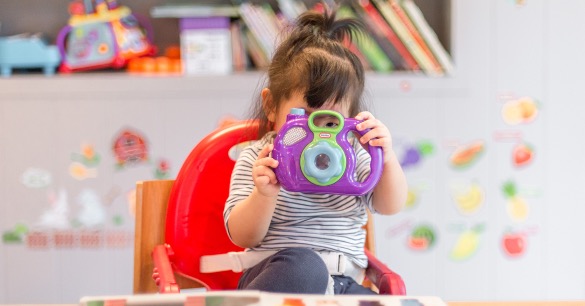Follow us on Telegram for the latest updates: https://t.me/mothershipsg
The Singapore Government plans to introduce new funding support for certain types of pre-implantation genetic testing for Singaporean couples, announced Minister in the Prime Minister's Office (PMO) Indranee Rajah on Mar. 2 during the Committee of Supply (COS) debates.
Pre-implantation genetic testing is a form of prenatal diagnosis which involves the genetic profiling of embryos before they are implanted.
Such testing, Indranee said, would "address concerns that some couples have over genetically transmitted diseases".
More details would be shared at a later time, she added.
The funding will be part of the Government's strategy for building a more resilient population, which includes building a Singapore that's made for families.
Falling fertility rates
Indranee, who oversees the National Population and Talent Division (NPTD) under the PMO, noted that Singapore's total fertility rate (TFR) had fallen since the pandemic started.
TFR measures the average number of children that each female would birth during her reproductive years if she were subject to the prevailing age-specific fertility rate in the population in the given year.
According to the Department of Statistics Singapore, TFR has been on a downward trend over the past decades, falling to a historic low in 2020 (1.10); Indranee said that it has since made a slight recovery to 1.12 in 2021.
She explained the recovery as the result of the number of births remaining constant while the number of eligible women dropped.
To address dropping birth rates, Indranee said the Government would "redouble our efforts to support Singaporeans who choose to get married and have children".
Supporting working families
Apart from funding for pre-implantation genetic testing, Indranee mentioned that continued heavy investment in the promotion of good health and education to give every child "a good start in life".
"The child and maternal health and wellbeing Task Force is developing a five-year national strategy to address this," she said, adding that more details will be provided during the Ministry of Health's COS.
The Minister in the PMO also spoke on the need to go beyond government policies when it came to making Singapore more family-friendly, calling instead for a "whole of society" approach.
One example Indranee delved into involved businesses adopting flexible work arrangements (FWAs), which she said was distinct from working from home.
"People often use these terms interchangeably but they're not the same. Work from home is only one type of flexible work arrangement," she explained.
"Other forms of FWAs include flexi-time and flexi-load arrangements. Every organisation, big or small, can consider adopting the FWAs that best suit the employee's needs."
Such arrangements, Indranee argued, was not only key to supporting employees in managing career and family commitments, but also in maintaining firms' competitiveness and productivity in the post-pandemic world.
Follow and listen to our podcast here
Top image from Tanaphong Toochinda via Unsplash.
If you like what you read, follow us on Facebook, Instagram, Twitter and Telegram to get the latest updates.
